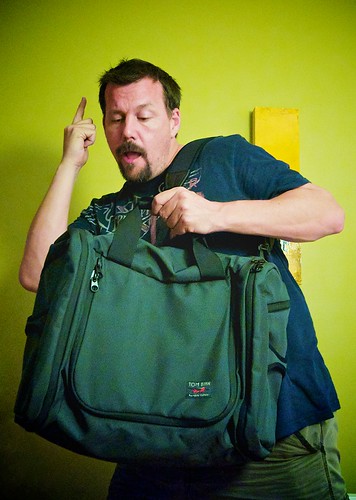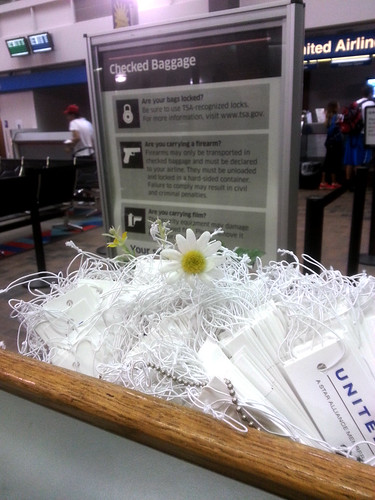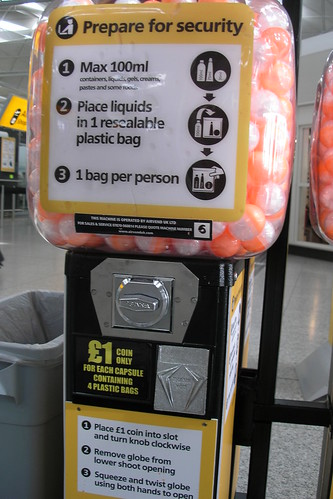With a business or pleasure trip just around the corner, packing your
luggage can be both fun and stressful. Not only do you need to account
for the clothing that you will need during your trip, you will also need
to think about overall weight and what you will place in each piece of
your luggage to avoid security issues.
You also need to plan if some of
your luggage decides to take a vacation of its own.
The
IHateTaxis.com team have packed up our luggage so many times for so
many different trips, be it for that relaxing week in Hawaii or the five
week safari in Tanzania complete with a Kilimanjaro hire.
All
IHateTaxis.com team members have had the experience of losing our
luggage for several days or have had to deal with a security issue since
something we packed was not allowed to go on the plane.
So with lots of experience and the latest security information, we have
complied a guide of "what you can and cannot take on the plane",
complete with all of our experiences to make your trip as stress-free as
possible.
What Can I Take in my Carry-On?
Carry-on luggage refers to your belongings that may be brought with you
into the cabin of an airplane. Airlines and airport security have many
restrictions regarding carry-on luggage. You must consider the number
of bags, their sizes, weights, and most importantly their contents. We
here at
IHateTaxis.com also have some tips with respect to your
carry-on luggage.
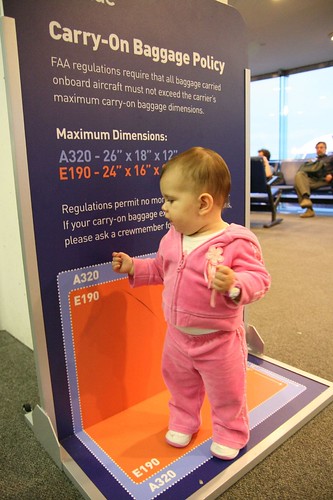
Due to limited room available in the cabin on the airplane, all airlines
will limit the number of bags you may bring on board. This limit is
usually one bag, although small purses and handbags are usually
permitted in addition to this bag. A few smaller airplanes will have
more restrictions, simply because there is limited room for anything
larger than a purse. Some airlines allow their business and first
class passengers a greater number of carry-on bags. Regardless, it is
always important to check the limitations with the specific airline you
are flying.
For most airlines, the dimensions of the carry-on luggage must not
exceed 45 linear inches or 114 linear cm (this is the luggage's height +
depth + width) and its weight must not exceed 40 lbs or 18 Kg. The
check-in area at most airports have a scale and measuring tools to
ensure that your bag is the appropriate size to be carried on board.
Once again, we strongly recommend that you confirm the maximum allowable
size of your carry-on luggage before arriving at the airport to prevent
having to re-pack at the check-in counter.
Things to Pack in Your Carry-on
Carry-on luggage restrictions are much greater than for checked luggage, so
we at
IHateTaxis.com have our recommended list of things you should
consider packing in your carry-on.
One way to think about your
carry-on is "what items are absolutely essential should my checked
luggage be lost?".
Our suggested list includes:
- Wallet or purse (with credit cards, bank cards, cash, travellers cheques/checks)
- Passport
- All medications (prescriptions or otherwise) and medical supplies
- Glasses (in hard-cover case)
- Highly-valued items (camera, laptop, tablet, reader, music player, phone, etc - and cords/chargers)
- Jewelry (note that some high valued gems and stones may require proof of ownership if travelling across borders - better yet, don't take any!)
- Snacks (note that some food types may not travel across borders. For example meat, fresh fruit and veggies, and some dairy products)
- Baby Supplies (bottles1, diapers and wipes, a toy, pacifier, change of clothes, etc)
- Change of clothing (consider the climate at your destination when packing spare clothing)
- Toiletries (toothbrush, toothpaste1, floss, brush/comb, make-up1, hygiene products1, perfume1)
- Child/Infant Car seat (may be permitted if you have purchased a seat for your child)
- Empty water bottle2
- All required documents (paper or etickets for travel, visas, hotel confirmations, travel insurance, etc)
1 All liquid or gel products should be packed in a clear 1 L bag for inspection and in many locations this bag must be removed and scanned separately from your carry-on at the security point. Sandwich-sized Zip-Loc bags are perfect for this and some airports will provide a bag upon request at the ticket counter or security checkpoint. The bag must seal shut and no individual product inside the bag may exceed 3.4 fluid oz or 100 mL. You are permitted only one 1 L bag per person. Baby items (formula and milk) are often exempt from this rule, although rules do vary between countries.
2 Water bottles are allowed on board, provided they do not contain fluid when you go through the security check. By carrying an empty water bottle and refilling (should a water source be available) after security will enable you to stay more hydrated during your trip. Commercially sealed water bottles purchased before security are NOT allowed, unless you empty them first.
Carry-on Items Prohibited
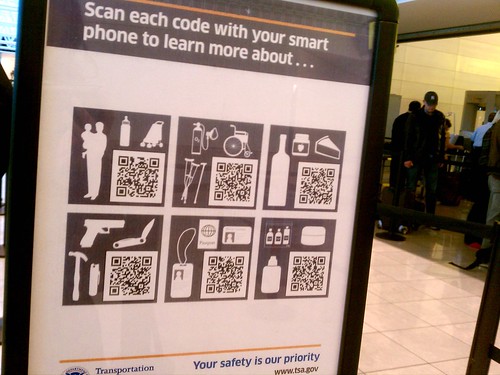
Do not pack any of the following in your carry-on as they will likely be confiscated by security. Some of these items may be placed in your checked luggage and some cannot travel by commercial air.
Carefully consider why you would need any of these items at your final destination or if they may be obtained when you arrive.
Carry-on items prohibited include:
- Firearms (pistols, flare guns, rifles, BB guns, toy guns, paintball guns) and ammunition
- Knives (including jack-knives, scissors3, swords)
- Weapons (including replicas)
- Tools (power tools and most hand tools3
- Greater than 100 mL of any fluid or gel (baby supplies are often exempt from this rule, provided you are travelling with a baby)
- Select toiletry items (razors, metal nail files, or any items with a sharp or pointed edge3
- Explosive materials
- Sporting goods (hockey sticks, baseball bats, skates, surf boards)
- Gases4
- Pressurized containers (e.g., hair spray bottles, shaving cream, spray paint)
- Matches (usually one package of safety matches or one standard lighter is permitted, but rules do vary)
- Poisons (e.g., fertilizers and other toxic materials)
- Infectious material (laboratory specimens)
- Fiberglass resins
- Peroxides
- Radioactive materials
- Strong magnetic materials
- Corrosives (e.g., drycleaners, car batteries, acids, alkalis, lye, mercury)
- More than 4 lbs or 1.8 Kg of dry ice
3 Note that some countries and airports do allow small nail files, scissors under 4 inches or 10 cm blade length, and smaller tools (screwdrivers, etc). But we strongly recommend packing these in your checked luggage to avoid problems unless you will absolutely need them during your flight.
4 If you require oxygen during the flight, this should be discussed with your airline well in advance as rules and regulations vary. Note that containers that have contained gases or flammable liquids (e.g., camping fuel bottles) are not allowed due to residues.
Please note that the above list is a simplified version derived from multiple government and airport websites and is not complete. Rules and regulations may differ between countries and even between airports within the same country.
We hope you have found our tips for carry-on luggage helpful. If you have your own tips to add, we welcome your comments!
This is just the first of a series we will be doing on luggage - stay tuned for more!
You might also be interested in:

